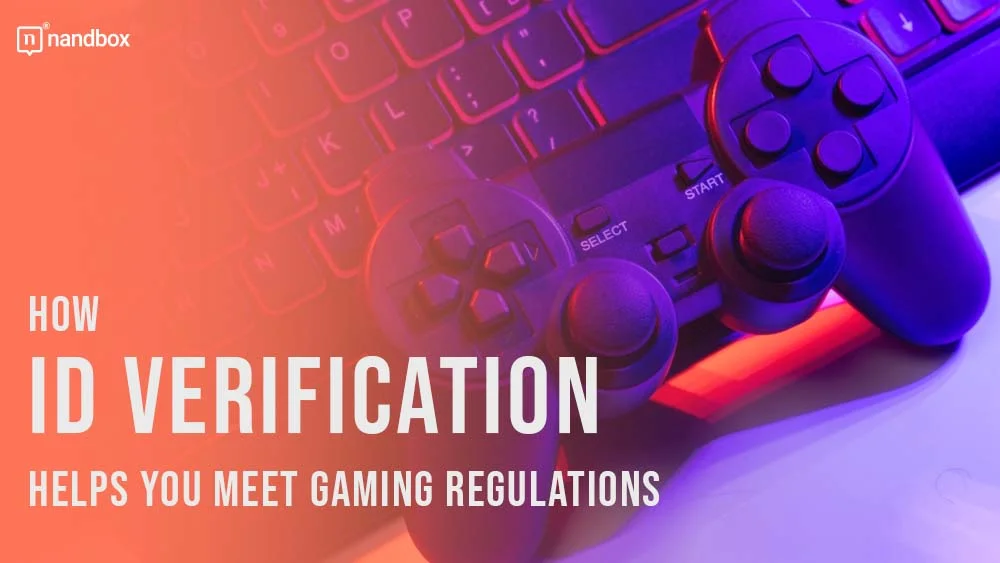The rise of digital technology has significantly reshaped the entertainment landscape. Online gaming has taken the world by storm, creating a global sensation that brings people together, fuels their enthusiasm, and generates massive amounts of revenue. In-app purchase (IAP) revenue in the gaming market reached figures of around $75 billion in 2022. Moreover, the same year saw revenue from paid gaming apps reach $1.16 billion. However, as the industry continues to expand, it is crucial to prioritize creating a secure and equitable space for every participant. Online gaming spaces require regulations to thrive. These frameworks address critical issues like underage gambling, financial security, and competitive balance. But how exactly do gaming companies navigate this ever-evolving legal landscape? In this blog post, we’ll explore a powerful tool that empowers gaming platforms and the whole gaming industry to comply with regulations and cultivate a healthy, secure environment for their players: ID verification.
Introducing ID Verification

Imagine a vibrant online metropolis, alive with digital adventures and populated by players young and old. This online city, like its physical counterparts, depends on a well-defined rulebook.
In the world of online gaming, these regulations, established by governing bodies, protect players and guarantee fair play. According to AUT10TIX, gaming platforms are required to follow certain regulations, including the Age Appropriate Design Code (AADC) and the Kids Online Safety Act (KOSA).
But how can you enforce these regulations within the vast reaches of your virtual environments? That’s where gaming identity verification steps in as a powerful tool that acts as an enforcer within this online domain.
Think of it as a digital handshake that establishes trust and ensures everyone’s playing by the same rules.
Age Check
Age verification is a critical component of meeting gaming regulations and ensuring a safe and legal environment for players. Are you a gaming company primarily dealing with online betting and gambling? If yes, it is your responsibility, both legally and ethically, to ensure that minors are not able to access or engage in gambling activities.
This is true for all age-restricted games.
The United States has a well-established legal framework, with various federal and state laws in place. Federal laws, such as the Unlawful Internet Gambling Enforcement Act (UIGEA) and the Federal Wire Act, address online gambling at the federal level. Individual states have their regulations. Not enforcing age restrictions can have serious legal repercussions and harm your reputation.
Common age verification methods include document validation, where players are required to submit a digital proof of identity, such as a government-issued ID or passport. The gaming companies then cross-check the player’s date of birth against official records.
In addition, artificial intelligence’s (AI) potential in this field shouldn’t be overlooked either. Advanced AI algorithms can analyze biometric data points from a player’s selfie, such as facial features, skin texture, and bone structure.
The software can then accurately estimate their age. This technology can be seamlessly integrated into your onboarding process. ID verification provides a frictionless and secure real-time verification of a player’s age, which elevates the gaming industry.
Anti-Money Laundering
The gaming industry faces significant risks related to money laundering. Illicit funds can be concealed by criminals through the use of gaming platforms. Sophisticated money laundering schemes can involve the use of stolen credit cards, virtual currency transfers, and complex networks of gaming accounts. Money laundering typically starts with the perpetrators obtaining credit card information from other users and external sources outside the video game. Stolen credit cards are utilized to make purchases of in-game currencies and various items through microtransactions.
The inherent anonymity and rapid transaction speeds in online gaming environments pose challenges for detecting and preventing money laundering activities. To mitigate these risks, you must adhere to stringent Anti-Money Laundering (AML) regulations, such as the Bank Secrecy Act (BSA) and the 4th Anti-Money Laundering Directive (4AMLD). These regulations mandate the implementation of comprehensive AML programs.
Identity verification is crucial for gaming companies to comply with AML regulations. Advanced techniques like biometric analysis and blockchain-based solutions help establish robust customer identities and assess money laundering risks. By checking players against international watchlists and sanctions databases, potential security risks can be flagged. Additionally, sophisticated algorithms can continuously analyze transactions, searching for unusual patterns that might indicate suspicious activity. This allows gaming companies to flag potential money laundering attempts.
Responsible Gaming
This is fundamental to the gaming industry. It is crucial to maintain this standard to safeguard players from the potential risks associated with excessive gaming.
Self-exclusion programs are a key component of responsible gaming. These are mandated by regulatory bodies to allow players to voluntarily ban themselves from gaming activities for a set period. These programs require gaming companies to provide easily accessible self-exclusion options and enforce the exclusion across all their platforms (online and offline). To facilitate effective self-exclusion, identity verification plays a crucial role. It enables gaming companies to accurately verify player identities, preventing self-excluded individuals from circumventing their ban and accessing gaming services.
Verified identity data also allows you to identify players at risk of problem gambling behaviors. This offers targeted support, such as deposit and time limits, access to helplines and counseling services, and educational materials on responsible gaming. By prioritizing responsible gaming practices and leveraging robust identity verification, the gaming industry can create a safer environment that supports player well-being.
To conclude, the online gaming landscape thrives on vibrant communities and the thrill of competition. However, it needs regulations to ensure a safe and fair environment for all. ID verification emerges as a powerful tool not only for the whole gaming industry but also for this digital ecosystem. It enforces age restrictions, safeguards against financial crimes, and empowers responsible gaming practices. By embracing this guarantee, gaming companies can not only comply with evolving regulations but also cultivate a culture of trust and security for their players.



